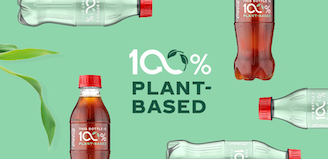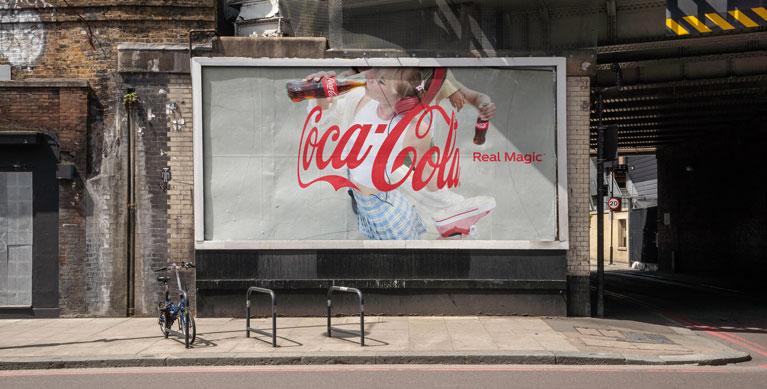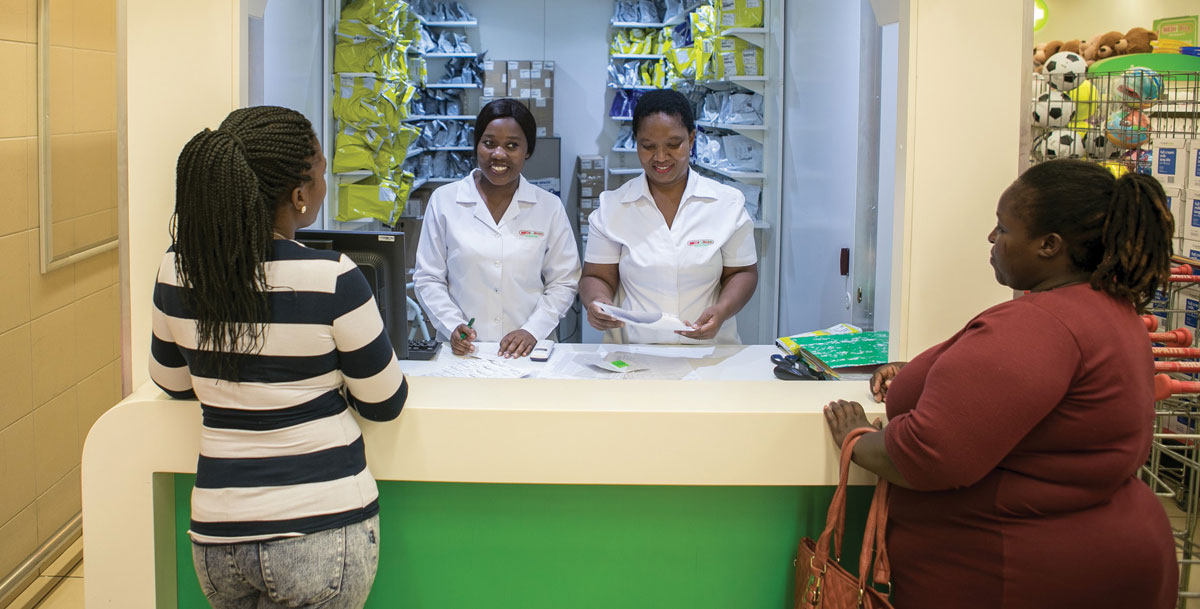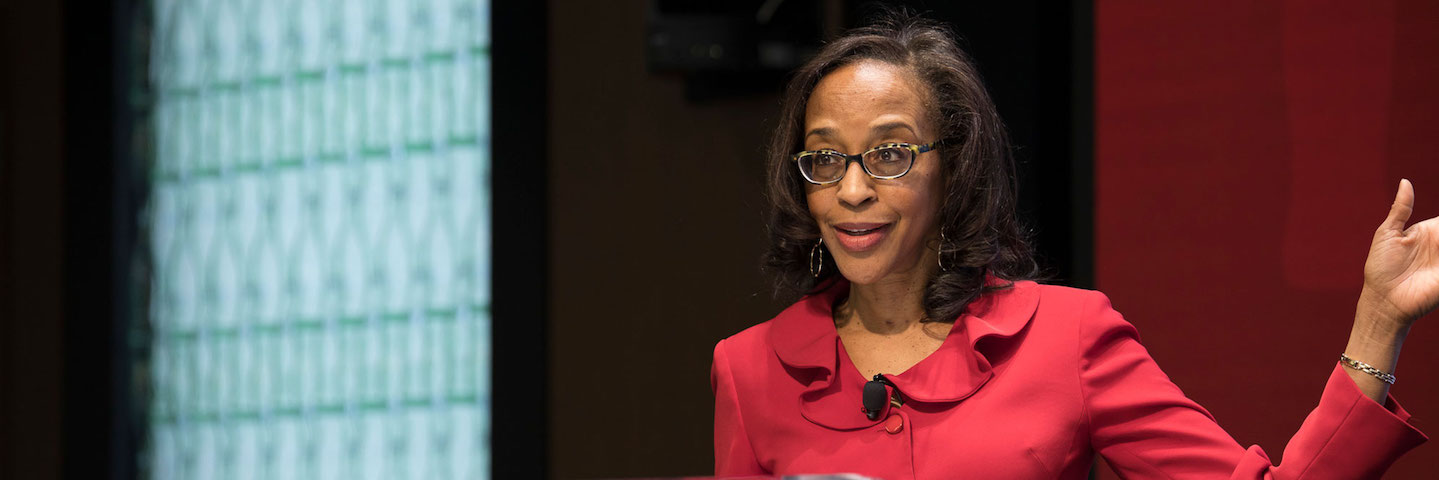
- Logo
- Our company
- Our brands
- Sustainability
- Social impact
- Careers
- News
- Investors
- Search
- Language
- Reciteme
Search

A Q&A With Lori George Billingsley
How Coca‑Cola is Creating a Culture of Diversity and Inclusion
03-25-2019
Lori George Billingsley’s passion for diversity and inclusion dates back to her childhood in Teaneck, N.J.
Her mother, a school teacher, and father, a minister, instilled in her a belief in the democracy of voices, ideas and perspectives.
“My parents taught me that the way to solve problems was to bring everyone around our kitchen table and hear them out,” Billingsley recalls.
Elected officials, business executives, neighbors, nonprofit leaders and church members were frequent guests at the George home, where they’d break bread and engage in spirited, yet respectful, debates. “Whether we were discussing civil rights or education reform or integrating our neighborhood, we all worked together and were part of the process,” she explains. “And that's the way I’ve always looked at everything.”
Billingsley brings this same mindset to her position as The Coca‑Cola Company’s Chief Diversity, Equity and Inclusion Officer.
“We get the best results when everyone has a seat at the table,” she says. “When we listen, we learn and we decide together it's important to value all perspectives, and that's why I'm excited to be in this role at a company that believes in the power of being diverse and creating an inclusive culture.”
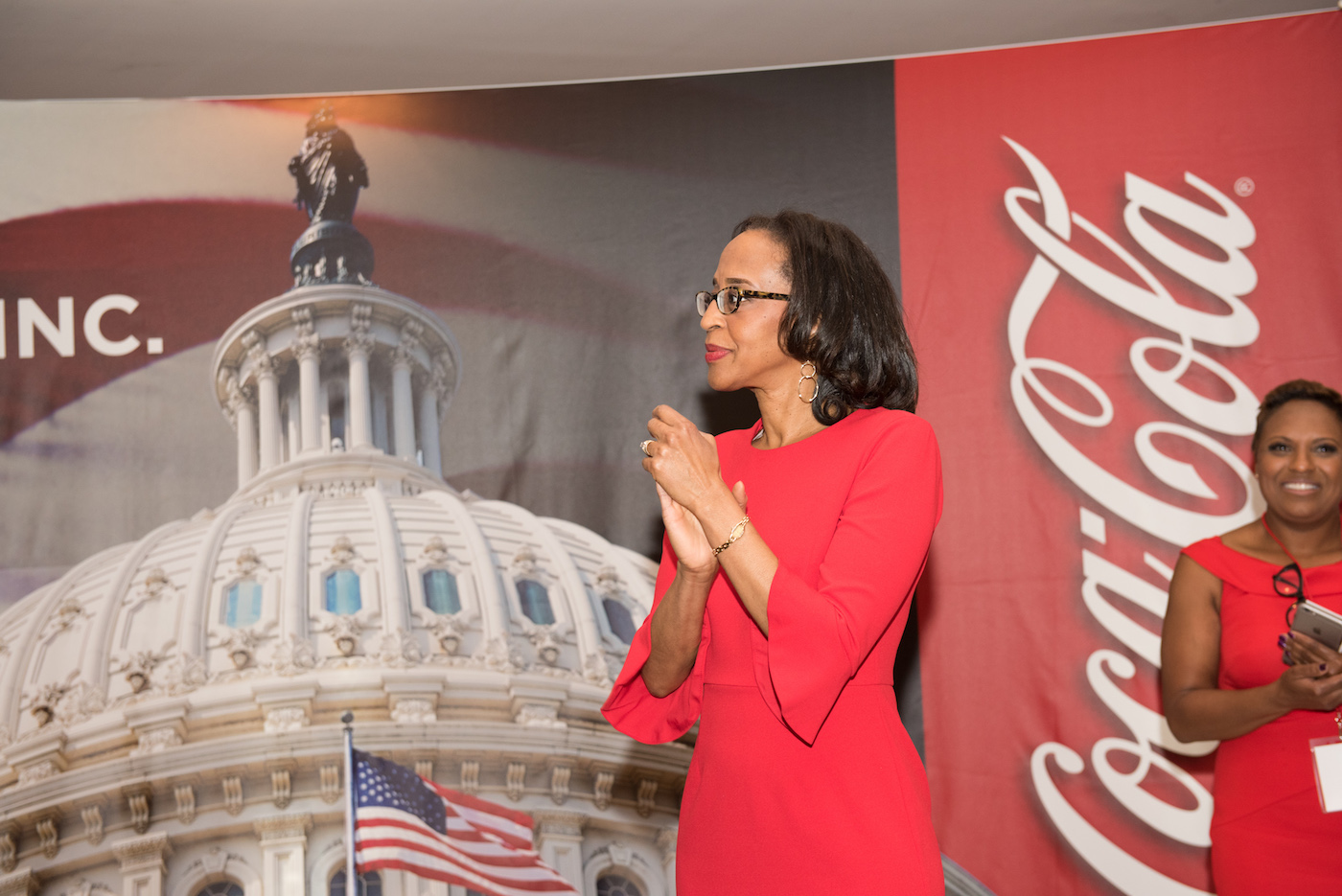
Billingsley leads the company’s Global Diversity and Inclusion Center of Excellence, along with the Diversity, Inclusion and Workplace Fairness teams for North America. Prior to taking the role in October, the 17-year Coca‑Cola veteran served as vice president of community and stakeholder relations for Coca‑Cola North America, leading community giving and engagement, stakeholder relations, employee volunteerism, community board placements, disaster relief and the company’s 5by20 initiative in North America.
An ordained minister, Billingsley serves as an executive advisor to the company’s Multicultural Leadership Council, Global Women’s Leadership Council and Millennial Voices Leadership Council. She also sits on several boards, including the board of directors of The Congressional Black Caucus Foundation Inc., Women’s Business Enterprise National Council, ColorComm, NAACP Foundation and Arete-Executive Women of Influence.
We sat down with Billingsley to discuss the company’s diversity and inclusion strategy and priorities:
Coca‑Cola recently was ranked among the 50 best companies for diversity, and in the top 10 largest U.S. companies in terms of commitment to gender equality. Why is this an opportune time to step into this role?
I’ve been involved in diversity and inclusion in every role I’ve had at Coca‑Cola, so I see this position as a culmination of all of those experiences. We’ve all been on a diversity journey for many years and, recently, have embraced the importance of inclusion. It’s an exciting time to make an impact in both of those areas, in the U.S. and globally.
How did your previous role as VP of community and stakeholder relations for Coca‑Cola North America prepare you for this role?
My team was responsible for partnerships with diversity and inclusion organizations, working closely with the Diversity & Inclusion Office and others to turn them from transactional partnerships into transformational partnerships. Having the ability to work with those organizations gave me a good snapshot of what was happening in the D&I space – from the LGBTQ community, to associates with disabilities, to women. And that has helped me hit the ground running in this role.
Billingsley leads the company’s Global Diversity and Inclusion Center of Excellence, along with the Diversity, Inclusion and Workplace Fairness teams for North America.
You’ve been in the job just over five months. What have you learned so far?
For my first 90 days, I was on a listen-and-learn tour. I talked to associates across all levels of the organization, as well as members of the executive leadership team and colleagues in HR. I met with D&I officers at other companies and had the opportunity to present to our Board of Directors’ Public Issues and Diversity Review Committee chaired by Secretary Alexis Herman.
I walked away with a few buckets of learnings. Company leadership was concerned about the progression of our pipeline and difficulty of sourcing diverse senior-level talent. Associates were not aware of some of our D&I initiatives and programs, and many think our work is only U.S.-focused. Others were unclear about their path to promotion at the company. I discovered a need for our office to strategically integrate better with HR, versus operating as a standalone department, to focus our shared efforts on addressing areas of opportunity and building for the future.
What are your initial priorities?
I developed a destination statement based on everything I learned during my first 90 days. We hear a lot about how community giving is in our company’s DNA. From my point of view, diversity and inclusion should be, too. In support of this destination statement, I landed on four strategic imperatives under the CARE acronym: (Create, Articulate, Regulate and Evaluate). Create is about building an inclusive environment by engaging diverse talent and influencing recruitment, development, advancement and retention. We will Articulate our progress through proactive communications. Regulate means managing our workplace in compliance with the law. Evaluate refers to providing a systematic set of tools like a D&I assessment we plan to initiate with our business units to identify best practices and opportunities for improvement. We did a similar exercise with our business units in 2016 and our top global bottlers in 2017.
Coca‑Cola has earned a reputation, through its marketing and more, as one of the world’s most inclusive brands. Does this mean we have an even greater responsibility as a company to ‘walk the talk’ as a champion of diversity and inclusion both inside and outside our system?
Yes, we absolutely do. We must be a champion for our business, our people and our communities. Our partners and suppliers look to us to be a vocal and active leader in the diversity and inclusion space, and we’re often recognized externally in surveys and awards as a company that’s best in class when it comes to diversity policies and practices.
Do our consumers share the same expectations?
Absolutely. There is a rise in people expecting corporations to do the right things that are not only good for business, but good for society at large. Consumers in general are more socially conscious, and they expect the brands they support to be equally conscious. There’s a standard and an expectation that we will do the right things and show up in the right places.
Are Millennials more concerned about a company’s D&I policies than other generations?
This is a universal sentiment, yes, but it shows up more among Millennials because they’re more outspoken about it. Millennials are hyper-aware of issues that connect to their beliefs and lifestyles, including diversity and inclusion. With them, there is no separation between work, play and day-to-day life. Everything is integrated.
How do you define diversity and inclusion?
Diversity is about things you can see. Inclusion is about feeling, once you’ve been invited in, that you’re part of what you’ve been invited into. That your voice is heard – and valued – and that you’re truly seen as part of the team. Often times you’re invited to the dance but then you get there and nobody asks you to dance. Dr. Steve Robbins, who is helping our company with “unconscious bias” education, talks about the insider versus outsider mentality. We want to make sure everyone feels like an insider, and feels included.
What is ‘unconscious bias’?
Being unaware of your biases. Because we all have them. For example, let’s say you get a resume in from someone applying for a job on your team and see that they graduated from your alma mater. And you think to yourself, unconsciously, “They’ll be great!” The same could be said for someone from your hometown, who lives in your neighborhood, who attends your church or maybe has kids in school with your kids. You have an unconscious bent because of your familiarity. “Conscious inclusion” is being aware of your unconscious biases and making a deliberate attempt to be inclusive.
Is there a difference between bias and prejudice?
For sure. Bias isn’t a dirty word. It’s just something we all have and we need to be aware of. That’s why this education we’re rolling out with Dr. Robbins – and we’re calling it education, not training – is so important. It can be harmful or counter-productive when we tend to cluster, congregate and lean our decision-making to people who are just like us versus being open to those who are not like us – or who bring to the table unique backgrounds, experiences or points of view.
What do you see as the greatest opportunities for your team?
There are so many, so it’s important to be deliberate and disciplined. This year is recalibration year as we identify the top strategic initiatives to focus on. We’re assessing what we’re doing and what we could do differently. For example, how can we reposition our Business Resource Groups (BRGs) and leadership councils to more effectively drive recruitment, retention, engagement and development of diverse talent? The Global Women’s Leadership Council focuses on driving sponsorship of female talent in senior-level roles. The Multicultural Leadership Council is focused on the recruitment, retention and pipeline development of multicultural talent. The Millennial Voices Leadership Council is helping us with a wonderful program they developed on reverse mentorship. Globally, we’re going to pilot an Inclusion Index and look at pay equity in certain countries. These are some of the priority areas we’ll focus on. Another is the unconscious bias education I mentioned earlier. We’re also embedding D&I across all components of our leadership curricula.
What are some of the more qualitative goals for your team?
Active engagement, whether through our diversity councils or our BRGs. We have to ensure our associates’ voices are heard and that we’re providing development opportunities that make an impact. One of our stated goals, globally, is to be 50 percent led by women. As company, our aspirational goal is to mirror the markets we serve from a female and diverse talent perspective, because we know that when we create an inclusive environment where people can bring their whole selves to work, our business thrives.
What excites you most about this role?
My previous role focused on giving or stewarding funding to organizations that are doing great things in the community. This role focuses on our culture, and the experiences our associates share inside the four walls of the company. I get to directly see the impact on the organization. Also, the fact that this is a global role is tremendously exciting.
Our company has identified a set of growth behaviors to serve as a foundation of the culture we hope to build. “Inclusive” is one of these growth behaviors. So it’s front and center, which shows inclusion is a key priority for our business and that everyone is expected to operate with an inclusive mindset.
Would you say the ultimate goal of the Chief D&I officer is work your way out of a job… by getting to a place where companies like Coca‑Cola no longer need leaders in this role?
Actually, yes! If we truly arrived at the destination statement I mentioned earlier, if everyone championed diversity and inclusion and these principles were embedded in our culture, then my job would be obsolete. And that would be the picture of success.
